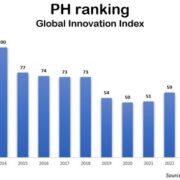To continue moving forward with the gradual reopening of the Philippine economy, the Department of Trade and Industry (DTI) will allow businesses such as barbershops, salons, and even restaurants to increase their operational capacities.
For barbershops and salons in areas under General Community Quarantine (GCQ), the increase in capacity permitted will be from 30% to 50% starting on July 16. For areas under the Modified GCQ (MGCQ), the DTI will also allow for an increase in the operational capacity from 50% to 75%.
“We know that the lockdown prevented the spread of COVID-19 but it significantly affected the livelihood of our fellow countrymen. These increases in capacities are meant to enhance the income opportunities of the workers and MSMEs to save jobs. This is critical in order to prevent the collapse of many Micro, Small, and Medium Enterprises (MSMEs) and the loss of livelihood,” DTI Secretary Ramon Lopez said.
“At 30% capacity, many MSMEs still earn below breakeven income, and workers are only able to receive limited earnings. As earlier approved by the IATF-EID and supported by Executive Secretary Salvador Medialdea, we started at 30% as a means to gradually reopen and to test the compliance of establishments to minimum health protocols, as well as not to shock the system.”
“As we conducted different inspections, we were pleased to see the high compliance of barbershops and salons at around 90-100%,” the trade chief further explained.
Sec. Lopez said that by increasing operational capacities of these establishments, they will be able to accommodate more customers and improve revenues and income. He stressed, however, that it was still crucial for businesses to follow the set safety guidelines and health protocols to prevent the transmission of the virus among their employees and customers.
According to Philippine Statistics Authority (PSA) data, the economy posted a severe contraction from +6.7% GDP growth rate in the fourth quarter of 2019 to -0.2% in the first quarter of the year, to a projected -3.4% for full year 2020.
Multilateral agencies such as the Asian Development Bank (ADB) and International Monetary Fund (IMF) also projected that the country’s 2020 growth rate will shrink at -3.8% and -3.6%, respectively, while S&P Global Ratings posted a less bearish slowdown at -3.0% for the full year.
Government data also showed that the unemployment rate of 5.3% in January 2020 surged to 17.7% in April 2020.
“While these figures can be disheartening, we remain optimistic as we see signs of recovery such as those in the manufacturing sector, when we slowly transitioned in May to Modified Enhanced Community Quarantine (MECQ) and GCQ. As an effect of the gradual reopening of the economy, the overall manufacturing capacity utilization increased to 73.4% in May compared to 71.2% in April,” Sec. Lopez said.
“Likewise, the IHS Markit Purchasing Manager’s Index (PMI) also continuously recorded an improvement in manufacturing performance from 31.6 in April to 40.1 in May and 49.7 in June. Aside from this, the Output Index also saw a rise in production among Filipino goods producers in June at 51.1, marking the first monthly increase in four months.”
PMI data are compiled by London-based IHS Markit for more than 40 economies worldwide. A PMI reading below 50 signals a decline in operating conditions compared to the previous month, while a reading of above 50 indicates improvement.
Sec. Lopez maintained confidence that the economy will soon be able to recover with these gains and with the projected 2021 growth rate of economic managers at 8-9%.
The MC also expanded the services on all haircutting and hair treatment services under GCQ, subject to strict protocol on hand sanitation, face mask and face shields, gloves, and sterilized equipment. Meanwhile, for areas under MCGQ, all services will be allowed.
“We decided to allow more services to open under GCQ so that workers can earn more in daily income as they do higher value service compared to only basic haircuts. There are 400,000 workers in the barbershop and salon industry and with this MC, we wish to help alleviate their financial burden,” Sec. Lopez said.
Later this week, DTI will also release a Memorandum Circular to increase the operational capacity of restaurants.
Currently, dine-in is only allowed up to 30% in GCQ areas and up to 50% in MGCQ areas.
“This is subject to strict social distancing, frequent sanitation of hands, wearing of mask when not eating, and (a) better exhaust system for air-conditioned restaurants,” Lopez said.
While the capacity of dine-in services will expand, implementing health protocols should be even stricter and that customers must be extra careful. Health experts agree that there is a higher risk of transmission of the coronavirus disease especially in closed spaces like restaurants.
“We just have to manage and live with the virus. It will be here to stay. [We] need to balance health and economy and time to restart the economy. [We] provide more livelihood at this time,” Lopez said.
He added treatments are getting better with more recoveries.
—
Stay updated with news and information from the Department of Trade and Industry by visiting their website at dti.gov.ph.





